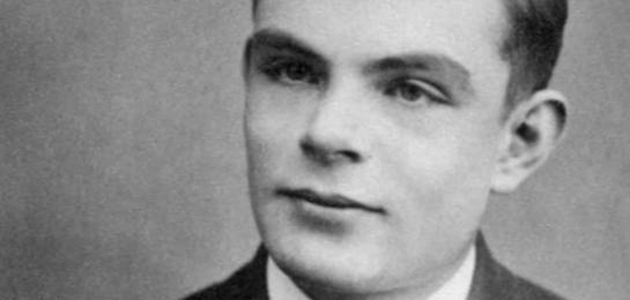Thought for the week: ‘Part of what it is to be human is to find solutions by making mistakes.’
Joseph Jones on a digital divide

I’m not likely to hold many fifty-pound notes – these days I make more payments via computers than with cash. So it was with an ironic pleasure that I heard that the new polymer notes will feature the face of the ‘father of computing’ Alan Turing. ‘Turing was an outstanding mathematician whose work has had an enormous impact on how we live today’, said the governor of the Bank of England when announcing the news. ‘[His] contributions were far ranging and path breaking.’
Turing’s life, though, was not a happy one. A homosexual, he was injected with oestrogen to neutralise his ‘unnatural state.’ After therapy proved unhelpful he committed suicide. This tragic biography leaves us furious now, but provides some context for Turing’s core area of thought: to what extent is the human mind a machine that can be manipulated? Conversely, could a machine ever imitate the human mind?
After two world wars these were important questions. Soldiers had been treated as disposable fighting machines, and the deaths of millions were mechanically processed. Turing’s ideas spoke directly to the anxieties of the 1950s, and to a bodily paradox he felt very personally: this ‘bag of inanimate molecules reordered into a man.’
His first major work gave an answer to the entscheidungsproblem: the question of whether it would be theoretically possible to discover by logical processes alone whether any statement was true or false. With a thought experiment using a theoretical machine that read symbols on a tape, he proved this in the negative: there existed problems that could not be computed.
Technologically, this was a huge breakthrough. It led directly to the development of modern computers. But philosophically, too, it opened up a whole new area of thought: if computability has limits, then do human beings have properties like responsibility and authority that other objects are unable to possess? Turing’s own view was based around appearance: it did not matter whether God – if God even existed – could give a machine a soul. What mattered was whether a machine could convince a human being that it had a soul. To address this he proposed the ‘Turing Test,’ whereby a person interrogated a human and a machine hidden behind a screen. If within five minutes the person is unable to discern which is which, the machine has passed the test and the machine is said to be ‘thinking.’ Some scientists believe that such a machine will exist by 2029 – just a decade away.
Turing identified one key paradox in this test. ‘If a machine is expected to be infallible,’ he said, ‘it cannot also be intelligent.’ Part of what it is to be human is to find solutions by making mistakes.
The world Turing lived in was unable to see his humanity as anything other than broken, and prescribed machine-like solutions to ‘fix’ him. He was pardoned in 2013. Today, when artificial intelligence looks less and less artificial, perhaps it’s time for us to give some consideration to just what it is that makes us human.
You need to login to read subscriber-only content and/or comment on articles.
